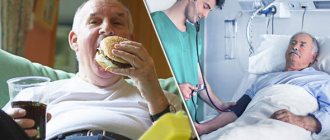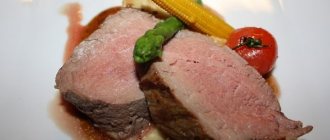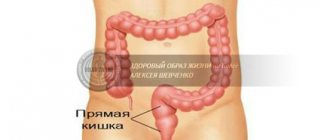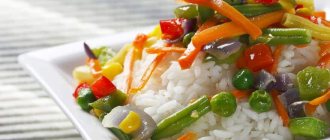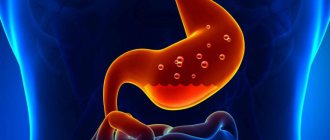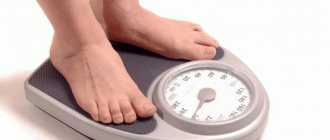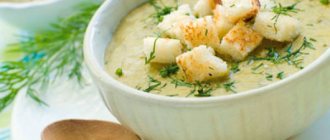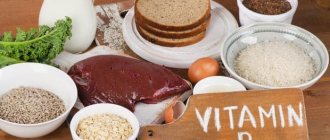The stomach is one of the central organs in the digestive system of our body. Many functions and performance of the body as a whole depend on its work. When an oncological disease manifests itself in its localization, many side effects and complications immediately arise. It is very important to follow a diet for stomach cancer, choose your diet wisely and carefully select foods. Our next article will be devoted specifically to nutrition for gastric cancer.
Proper nutrition can greatly help the body in the fight against illness, survive all courses of treatment along with side effects, and cope with the disease in its later stages. And if you specify the problem of the stomach, then several more problems will get in the way - you will need to somehow deal with the digestion of food, and also come up with something in case of removal of the stomach (gastrectomy). In general, the topic is planned to be big. Go!
Stages of cancer
Oncopathologies, like any other diseases, develop gradually. Diagnosing stomach cancer at an early stage is almost impossible without special laboratory tests. In most cases this happens by accident. There are 4 stages in total:
- At this stage, the disease is just beginning to develop, being located exclusively in the gastric mucosa. It does not affect muscle tissue. The early form of cancer is completely curable with surgery, as well as with radiation and chemotherapy.
- A more advanced, but still correctable case is the second stage of stomach cancer. The tumor penetrates the serous membrane, the lymph nodes begin to react to pathological processes in the body. After surgery and a course of chemotherapy, it is extremely important to be under the strict supervision of a specialist, as well as to follow a diet.
- This stage is considered inoperable, but some doctors still agree to complex operations. There is a high risk of death. At stage 3, the tumor spreads deep into the muscle tissue and metastasizes to regional lymph nodes. The body begins to experience debilitating pain that cannot be eliminated by ordinary analgesics. Moreover, constant nausea, vomiting, and digestive disorders appear. Most often, patients with stage 3 cancer turn to specialists.
- An advanced stage, which, unfortunately, cannot be cured. At this stage, the maternal tumor disintegrates, and metastases affect the entire body. Irreversible consequences occur: refusal of food, general exhaustion, weight loss and excruciating pain. All that specialists can do is to alleviate the course of the disease.
https://youtu.be/8VEixF3f0n4
General information about cancer
Hundreds of thousands of cancer cells are formed in the human body every day. However, the immune system quickly destroys them, sending special “defender” cells to the tumor site. This process is called apoptosis or planned cell death. However, when the activity of these cells decreases, the immune system is not always able to recognize malignant antigens.
Factors that provoke a decrease in natural antitumor protection:
- chemical carcinogens (tobacco combustion products, food saturated with preservatives, industrial waste, synthetic pharmaceuticals);
- biological carcinogens (Epstein-Barr virus, adenoviruses, papillomaviruses, herpesviruses).
- physical carcinogens (radioactive, electromagnetic, ultraviolet, x-ray radiation);
- endogenous carcinogens (toxins and wastes formed as a result of metabolic dysfunctions);
- genetic predisposition (chromosomal defects).
When a person wants to avoid recurrence of cancer pathology after surgery, a course of chemotherapy, or reduce the symptoms of organ disease, he needs to seriously reconsider his diet.
What should you do? The main condition is that food for stomach cancer should not contain carcinogenic substances. You need to adhere to the following rules:
- Reduce the amount of servings you consume. In this case, you can eat up to 10 times a day;
- Monitor food temperature. Do not eat very hot or cold foods. Food that is close in temperature to normal, human temperature is digested well;
- Food should be well chewed, without large pieces. This reduces stress on the stomach and promotes proper absorption of nutrients;
- Steam or boil foods. Fried foods cause irritation of the gastric mucosa;
- Consume only freshly prepared food;
- It is necessary to avoid strong seasonings and spices, although it is useful to eat garlic when eating after gastric resection for cancer.
- Increase the amount of exclusively “light” food of plant origin. Vegetables and fruits, fresh or cooked, contain fiber, which promotes proper release of the organ. Enzymes and vitamins contained in plant foods limit the spread of malignant cells.
- Nutrition after removal of the stomach for cancer should contain a minimum amount of salt and the fat composition should not exceed 30%, and the bulk of fats should come from plant products;
- It is especially difficult to organize nutrition for stage 4 gastric cancer with metastases. In such cases, patients often refuse to eat at all.
General recommendations
Treatment in the early stages can lead to complete recovery. That is why experts recommend annual endoscopic diagnosis. We can’t influence all the causes of cancer, but there are simple preventive measures that will help reduce the likelihood of the disease:
- regular and thorough examination in the presence of chronic gastritis, peptic ulcer, polyposis and anemia;
- nutrition adjustments. Limiting fatty, fried, spicy, smoked foods, as well as alcoholic beverages;
- careful attention to the choice of vegetables that can be a source of carcinogens, nitrates and nitrites;
- dishes served to the table must be at a comfortable temperature that corresponds to the temperature of the human body;
- compliance with measures while taking medications;
- rejection of bad habits;
- maintaining a proper diet, which means avoiding overeating and too frequent breaks between meals.
The daily menu for patients with stomach cancer includes those products and dishes that correspond to treatment table No. 1. The basis of the diet should be food that is easily digested and contains a large amount of useful substances. Dietary nutrition is selected by a qualified doctor depending on the stage of the pathological process.
Nutrition for stomach cancer involves frequent meals in small portions. To avoid psychological discomfort and feelings of deprivation, it is better to purchase small plates. This measure will improve the digestion process and reduce the load on the stomach.
In order not to irritate the already inflamed gastric mucosa, the amount of salt consumed in the diet should be minimized. Patients will have to completely give up spices and seasonings. It is best to eat fresh food that has been prepared immediately before serving.
Patients with this diagnosis need increased consumption of easily digestible protein. They are recommended to include turkey, chicken, river fish, lentils, peas, and low-fat cottage cheese in their diet. To fight the disease, you cannot do without complex carbohydrates: vegetables, cereals, bread, nuts, fruits, cereals.
How to treat stomach cancer?
The main method of cancer treatment remains the complete removal of the detected tumor, followed by the use of radiation and/or chemotherapy. It is extremely important to contact a specialist in a timely manner. Only a qualified doctor can prescribe an effective method of therapy.
Also, as an auxiliary treatment, a special diet is prescribed for patients with stomach cancer. It is aimed not only at facilitating the patient’s rehabilitation, but also at preventing relapse.
Basic rules of nutrition for cancer
When drawing up an “anti-cancer” nutritional plan, it is important to take into account the location of the tumor process, the stage of its development, the nature of the course, the patient’s condition, the list of concomitant diseases, and the nuances of the prescribed therapy. For example, after operations on the gastrointestinal tract, especially when part of the intestine or stomach is removed, the absorption of nutrients from food deteriorates, which is why food should be easily digestible and highly nutritious.
With liver cancer, in 80% of cases, swelling of the parenchyma occurs, “pressing” on the adjacent areas of the stomach and making it difficult for food to move into the intestines. In this case, diet therapy should be aimed at improving the secretory function of the gastrointestinal tract (reducing flatulence, feeling of heaviness, pain) and enhancing the detoxification functions of the affected organ.
However, before drawing up an “anti-cancer” menu (for all types of pathology), it is important to calculate the number of kilocalories consumed by the patient. As a rule, the energy value of their diet does not exceed 600–800 kilocalories (due to loss of appetite and rapid satiety). Due to the low calorie content of the food menu, in 90% of cases, normal metabolism is disrupted, and a person rapidly loses weight.
To maintain a stable weight, it is important for the patient to consume at least 30 kilocalories per kilogram of body weight. If you need to gain weight, the energy value of the diet is increased to 40 kilocalories. In addition, when selecting food products, the optimal ratio of food components is taken into account: carbohydrates - 55%, fats - 30%, proteins - 15%.
General nutritional requirements:
- Chew food thoroughly. This will help improve the absorption of nutrients in the digestive tract.
- Eat small meals. The optimal frequency of meals is 6 – 7 times a day.
- Consume food in small portions. To avoid bloating and defecation disorders, eat no more than 200 grams of food at one time.
- Eat only freshly prepared food. The maximum shelf life of food in the refrigerator is 12 hours.
- During resection of the digestive tract, consume food only in softly ground form.
- Maintain drinking regime. To speed up the elimination of toxic substances, you should drink at least 2 liters of still water per day (for kidney cancer, the daily volume of liquid is agreed upon with the oncologist). In case of vomiting or diarrhea, the daily portion of water is increased to 3 liters.
- Use gentle methods of heat treatment of food (boiling, baking, steaming). This will help “unload” the liver, since frying releases a huge amount of carcinogens.
- Eliminate too hot and cold foods from your diet.
These recommendations are prescribed in cases where either surgery is impossible for technical reasons, or there is a possibility that the person will not undergo the operation, or the disease is advanced and surgical intervention will no longer help. These recommendations should also be used by healthy people as a preventive measure.
You need to prepare food for one meal at a time. Prepared foods should not be stored in the refrigerator until the next meal. When cooking, it is advisable to avoid salt. It can be replaced with seasonings. Ginger, cinnamon, cloves, anise, dill, cumin, cilantro are suitable. To select seasonings, it is better to consult a doctor.
You should not eat cold or hot food. It is important to chew food until it becomes a homogeneous pulp, without large pieces. To do this, you can make a meditation out of lunch, devoting time only to food. You need to put small portions in your mouth to prevent automatic swallowing, and chew food slowly, enjoying the process. Eat liquid, semi-liquid or crushed food to reduce stress on the stomach. By the way, liquid food also needs to be chewed a little.
The digestion process begins in the mouth. With the help of saliva, microelements are broken down into simpler ones, and it is much easier for the stomach to digest them.
It is advisable to eat small amounts of food 7 times a day without overeating. There should be a feeling of lightness in the stomach. You should not skip meals, even if you do not feel hungry or have no appetite. If the weight of a cancer patient decreases, then consultation with a doctor on diet is necessary.
The diet for stomach cancer in the postoperative period is in many ways similar to the diet before surgery:
- food must be fresh, liquid, semi-liquid or crushed;
- You need to eat as slowly as possible, chewing thoroughly and processing food with saliva;
- food should be warm.
Now the differences:
- It is necessary to eat food every two hours at a certain time, in small portions;
- You should not drink immediately after eating; at least half an hour should pass from the moment you eat before consuming any drinks;
- completely eliminate sugar, honey and other quickly digestible carbohydrates from the diet;
- if during a meal you feel severe discomfort associated with the rapid entry of food into the intestines, it is recommended to eat while lying down or lie down immediately after lunch;
- exclude fats, especially of animal origin.
For three months after surgery to remove cancer, you must carefully adhere to the diet agreed with your doctor.
Typically, after a patient is diagnosed with cancer, surgery is performed to remove all or part of the stomach. People with an advanced stage and complications stand apart, in a situation with which it simply does not make sense to perform any surgical interventions.
Depending on the severity of the disease, its shape and type, the patient is prescribed an individual diet for stomach cancer. There are several groups of such power systems:
- before and after surgery;
- lifelong to prevent relapse;
- for inoperable patients with advanced stage cancer.
What is there in the early postoperative period?
The first day after surgery, nutrition is administered intravenously using droppers.
Self-feeding is not possible for 1-2 days after gastric surgery. The necessary nutrients are administered through a vein drip to prevent exhaustion of the body and speed up recovery. The calculation of the required nutrients is carried out by a doctor based on a blood test. It is recommended to administer dry milk mixture diluted in water through a tube, as it contains a high concentration of protein. The optimal dosage is 10 g of powder dissolved in 50 ml of liquid.
On day 3, if there are no complications after gastrectomy, dosed consumption of a decoction of rose hips, weak brewed tea or liquid compote is allowed. You can drink 1/6 of a glass at one time. Liquids are drunk up to 6 times a day. Allowed foods for the next week after surgery are presented in the table:
| Day | Portion volume, g | Recommended dishes |
| 4 | 50 | Cream soup |
| Meat and fish soufflé | ||
| Scrambled eggs | ||
| 5—6 | 100—150 | Steam omelette |
| Oatmeal | ||
| Ground boiled vegetables | ||
| 7—9 | 200—250 | Meat and fish puree |
| Porridge curd | ||
| 10 | 350—400 | Vegetable puree |
| Kneli | ||
| Chicken steam cutlets |
Therapeutic nutrition for stomach cancer
Thanks to the results of recent studies, it has been established that the diet for stomach cancer should be, first of all, low-calorie. Heavy food negatively affects not only the patient’s physical well-being, but also the speed of recovery of the body after treatment.
As a rule, stomach cancer is always accompanied by other pathological disorders of the body. For example, gastritis is the most common “companion” of cancer. It is extremely important to prevent the development of the latter in order to eliminate the risk of ulcer formation.
If, as a result of research, stomach cancer has been diagnosed, diet, nutrition and principles of food consumption are prescribed on a strictly individual basis by the attending physician. Self-medication is not only ineffective, but also life-threatening.
Useful tips
In any diet, for any disease, vegetables and fruits are indispensable products, and stomach cancer is no exception. If possible, fruits and berries should be domestic, grown on their own plots. It is necessary to include in the diet all vegetables and fruits that contain provitamin A, vitamins C, E, A. These are carrots, peppers, spinach, cabbage, fresh herbs, tomatoes, citrus fruits, berries. Many of them have an antitumor effect and improve intestinal microflora.
A special place in the diet of cancer patients is occupied by beets and beet juice, which is good to drink in the morning. Freshly squeezed juice should be kept in the refrigerator for 2-3 hours before drinking. This is because it contains volatile substances that can cause nausea and vomiting. Due to the unique taste, the juice takes some getting used to.
You can drink 2 glasses of carrot juice a day. Microelements contained in carrots, entering a diseased cell, cause reverse processes in it. This helps the body recover. Carrot juice is beneficial in the early stages of cancer. You can also drink it as a preventative measure.
Pumpkin should occupy a special place in the diet. It removes cholesterol from the body well, helps cope with anemia, and strengthens the immune system.
Vegetables and fruits need to be peeled. These are tomatoes, cucumbers, apples, pears. The coarse fibers contained in the peel are difficult for a sick stomach to process.
In spring, it is good to use fresh nettle and dandelion leaves, beet tops and radish leaves in salads.
The desired ratio of proteins, fats and carbohydrates should be as follows: carbohydrates 55%, proteins 15% and fats 30%.
It is recommended to cook meat in two waters. The first broth is drained 15 minutes after boiling and new water is poured into the pan. Ready meat is ground before consumption.
It is better to consume all vegetables and fruits in processed form: chop, grate, make juices, boil, steam, mash with the addition of spices approved by your doctor.
If before illness a person had foods that caused irritation in any form, they should be abandoned first.
Cancer patients must follow a strict diet for three months. Then it will be possible to gradually expand the list below, supplementing it with new products.
List of useful products:
- red, green, yellow vegetables and fruits, fresh herbs;
- vegetable juices (it is advisable to pay special attention to carrot and beet juices);
- dishes made from steamed or boiled vegetables;
- vegetable puree;
- vegetable puree soups;
- purees, jellies and mousses from fruits and berries;
- boiled porridge (especially pumpkin porridge);
- soups with boiled cereals;
- low-fat fresh cottage cheese;
- meat and fish, boiled in two waters and chopped;
- steamed omelettes;
- soft-boiled eggs (no more than four per week);
- vegetable oil for adding to salads;
- bread should be chosen from first-grade flour, baked yesterday;
- green, fruit or herbal tea;
- alkaline mineral water without gas (agreed with your doctor).
As with any therapeutic diet, there is a list of foods that you should not eat. Stomach cancer also requires some restrictions. Banned are foods that take a long time to digest, harm the gastric mucosa and complicate the functioning of the intestines. Some foods from the list below should not be consumed by healthy people.
List of harmful products:
- legumes and sauerkraut;
- unripe berries and fruits;
- sour fruits on an empty stomach;
- semi-finished products;
- canned vegetables and snack foods;
- fatty broths boiled in one water, meat and fish;
- smoked, salted fish and meat products;
- vegetable, meat and fish sauces;
- fried food;
- mushrooms in any form;
- spicy seasonings;
- sugar;
- animal fats (meat should only be dietary);
- alcohol;
- carbonated drinks;
- strong coffee and tea.
Stomach cancer is a complex disease, like many others, so it is better to take preventive measures. One of the main methods of prevention is proper nutrition. Therefore, the information given above will reduce the risk of stomach cancer, strengthen the immune system and the body as a whole.
- For nausea (especially in the morning, without getting out of bed), eat several slices of toast, bread or biscuits.
- To eliminate irritating odors (food, household, cosmetic), ventilate the room more often.
- To increase the body's antioxidant protection, add garlic, onions and fresh herbs to food (to improve appetite).
- When the mucous lining of the digestive tract is inflamed, it is important to avoid overly sweet, bitter and sour foods. To reduce the irritating effect on the digestive tract, fruit, vegetable and berry juices are diluted half with clean water, or jelly is prepared. Along with this, limit the intake of foods that cause increased secretion of gastric secretions.
- If there is difficulty swallowing or chewing, preference is given to soft foods: soups, boiled porridges, grated vegetables, chopped fruits and berries. If necessary, use baby food.
- In case of diarrhea, limit the intake of fresh fruits, vegetables, and salads, which cause a laxative effect. At the same time, strengthening products are introduced into the daily menu: unsweetened crackers, bread, potatoes, cottage cheese, flaxseed, rice. To reduce bloating, use decoctions of dill, fennel, and chamomile.
- To stimulate the evacuation function of the intestines, the patient’s diet is enriched with fiber (fruits, vegetables, herbs, berries, cereals, seeds, nuts). Along with this, to eliminate constipation, drink 700 - 900 milliliters of pure filtered water before breakfast (within 1.5 hours).
- If salivation is impaired (as a result of radiation therapy), preference is given to pureed and liquid foods (herbal and fermented milk drinks, soft chopped vegetables, slimy porridges). In addition, chewing gum, sour fruits or candies are used to enhance the secretion of the salivary glands.
Sample menu
The diet for gastrectomy (gastrectomy) is determined by the treating specialist. Despite this, every patient should know what diet he should follow. Sample menu for the first 3 days:
- First day: Breakfast: oatmeal with the addition of permitted fruits;
- weak tea.
- curd soufflé;
- cauliflower soup;
- biscuits;
- boiled pike perch fillet;
- Breakfast: soft-boiled eggs;
- oat cookies;
- vegetarian soup;
- cheesecakes with low-fat sour cream;
- vegetable stew;
- Breakfast: buckwheat porridge with water;
- fruit jelly;
- beetroot;
- carrot and beet salad dressed with vegetable oil;
- steam omelette;
If a patient wants to introduce a new product into the diet, it is imperative to consult with a specialized physician. In some patients, certain foods are well accepted by the body, while in others they cause a number of undesirable reactions, which is especially unsafe after gastric surgery.
FAQ
Currently, there are many “anti-cancer” diets that exclude sucrose from the daily menu (based on the hypothesis that the tumor “feeds” on sweets). It is true that abnormal cells consume glucose during the process of dividing. However, this process is also typical for other structures of the body (brain, liver).
To date, there is no scientific evidence that people with a sweet tooth accelerate the growth and development of the tumor process.
Yes. Periodic consumption of small portions of wine will not affect the growth and location of the tumor. The exception is the day of the chemotherapy session and the next day, since the organs affected by the toxic procedure have not yet recovered. Additional stress on the liver is also not recommended.
No. Metastatic tumors of bone tissue arise as a result of the development of a malignant process in the primary organ (mainly the prostate or mammary gland). Therefore, diet therapy for cancer should be, first of all, aimed at removing the malignant focus and reducing carcinogenic intoxication of the body.
No, because regular consumption of whole milk products increases the risk of cancer by 30% (due to increased levels of insulin-like growth factor). This is evidenced by the results of two studies conducted by a group of scientists from Harvard University and the medical company Kaiser Permanente.
Red beet juice inhibits tumor growth, reduces pain, normalizes hemoglobin and ESR, and increases the oxidation of cancer cells (5-10 times). The healing drink is effective for oncology of any type (especially for cancer of the bladder, stomach, rectum, lungs).
Basic rules for taking the “drug”:
- After preparation, the freshly squeezed juice is placed in the refrigerator for 2 hours (to volatilize harmful substances).
- “Juice therapy” begins with small portions (5 milliliters after each meal), gradually increasing the dose to the daily volume (500 – 600 milliliters). If you drink the daily portion in 1-2 doses, nausea, hiccups, pulse irregularities, surges in blood pressure, and pain in the epigastric region occur.
- Beetroot juice is taken 100 milliliters 5 times a day 30 minutes before meals.
- Before consumption, the juice is slightly heated (to a temperature of 36 degrees).
What is recommended for stomach cancer patients to eat?
During treatment of the disease and during the period of remission, it is strictly forbidden to eat foods that are difficult for the stomach, foods containing large amounts of acids and animal fats, as well as fried, salty and overly spicy foods.
Prohibited products include the following:
- legumes;
- foods with coarse fibers, including red meat;
- tomato sauces;
- mushrooms;
- pickles, smoked meats, canned food and marinades;
- fatty broths;
- coffee, strong tea, carbonated and alcoholic drinks;
- unripe and sour vegetables, fruits;
- simple carbohydrates (chocolate, sugar, baked goods).
All these products are contraindicated for stomach cancer. However, it is worth understanding that this list is incomplete. Any diet is prepared on a strictly individual basis by a qualified doctor.
A person diagnosed with a malignant tumor should know well what he can eat and what he needs to refuse. Such knowledge will help to create a complete menu that would satisfy the patient’s taste needs and at the same time serve as a means of restoring strength.
Nutrition for pancreatic cancer
For pancreatic cancer, the daily menu should consist of boiled, baked and steamed foods. To reduce the load on the organ, food (porridge, vegetables and seafood) is ground through a sieve before consumption. If, as a result of treatment, the pancreas affected by the tumor was removed, then insulin therapy is mandatory.
To alleviate the condition of prostate cancer (especially after surgery), it is important to adhere to the menu below.
Monday
Breakfast: 250 milliliters of grapefruit-orange juice (freshly squeezed).
Lunch: 200 grams of fruit and millet porridge, 50 grams of oatmeal cookies.
Lunch: 150 grams of lentil puree soup, 100 grams of carrot-garlic salad, 70 grams of fish meatballs, 20 milliliters of flaxseed oil.
Afternoon snack: 100 grams of baked beans in tomato.
Dinner: 100 grams of any berries, 50 grams of any cheese.
Tuesday
Breakfast: 150 milliliters of carrot-beet juice (freshly squeezed).
Lunch: 100 grams of cottage cheese, 20 grams of natural honey, 15 grams of sesame seeds.
Lunch: 150 grams of barley or buckwheat porridge, 70 grams of boiled chicken, 100 grams of cabbage salad.
Afternoon snack: 150 grams of baked eggplants with tomatoes.
Dinner: 100 grams of yogurt (homemade), 50 grams of dried fruits (dates, dried apricots, raisins).
Breakfast: 100 grams of seasonal fruits or berries.
Lunch: 70 grams of oatmeal cookies, 20 milliliters of honey, 20 grams of assorted nuts (walnuts, hazelnuts, almonds).
Lunch: 150 grams of tomato soup, 100 grams of chopped vegetables, 70 grams of jacket potatoes, 15 milliliters of olive oil.
Afternoon snack: 100 grams of vinaigrette.
Dinner: 100 grams of carrot-beet juice.
Thursday
Breakfast: 150 milliliters of apple and pumpkin juice.
Lunch: 100 grams of avocado salad, 50 grams of fresh carrots.
Lunch: 150 grams of pureed rice soup, 70 grams of meatballs, 100 grams of tomato.
Afternoon snack: 150 grams of prune and beet salad, 15 milligrams of flaxseed oil.
Dinner: 100 grams of assorted nuts, 100 milliliters of cranberry juice.
Friday
Breakfast: 100 grams of any berry juice (freshly squeezed), 50 grams of dried apricots.
Lunch: 150 grams of cottage cheese, 50 grams of seasonal fruit.
Lunch: 150 grams of carrot and cabbage puree, 100 grams of chopped vegetables, 70 grams of fish cutlets, 15 milliliters of flaxseed oil.
Afternoon snack: 200 milliliters of green tea, 70 grams of oatmeal cookies.
Dinner: 100 grams of kefir.
Saturday
Breakfast: 150 milliliters of beetroot-orange juice, 100 grams of nuts.
Lunch: 150 grams of cottage cheese casserole. 150 milliliters of green tea.
Lunch: 150 grams of pea soup, 70 grams of avocado and lemon salad, 10 milliliters of flaxseed oil.
Afternoon snack: 100 grams of yogurt, 20 grams of flower honey.
Dinner: 200 milliliters of herbal decoction.
Sunday
Breakfast: 150 milliliters of apple and grapefruit juice.
Lunch: 100 grams of seasonal fruits or berries, 20 grams of almonds.
Lunch: 150 grams of stuffed peppers, 100 grams of leafy green salad, 15 milliliters of flaxseed oil.
Afternoon snack: 200 milliliters of burdock decoction, 50 grams of biscuits.
Dinner: 150 grams of cottage cheese casserole.
Interesting recipes
If you carefully think through the menu for a removed organ, the patient will immediately improve and gradually diversify his diet.
Baked apples
Ingredients:
Berry jelly
Ingredients:
- raspberries - 50 g;
- black currant - 100 g;
- corn starch - tablespoon;
- water -1 liter;
- sugar - to taste.
Omelette
Components:
- eggs – 4 pcs.;
- salt - half a teaspoon;
- milk – 150 ml;
- vegetable oil - teaspoon;
- butter - to taste.
https://youtu.be/c2qXfoUOfZA
Products contraindicated in the treatment of stomach cancer
- Vegetable and milk soups, the components of which must be pureed;
- Raw and soft-boiled eggs;
- Lean varieties of meat and fish;
- Low-fat cottage cheese;
- Well-cooked porridge;
- Bread made from premium flour, preferably not fresh;
- Jelly made from fruits and berries;
- Butter;
- Vegetable fats.
To recover after gastric surgery or a course of chemotherapy or radiation therapy, patients need to eat as many ripe vegetables, fruits, and berries as possible. It is recommended to give preference to fruits with red and yellow skin, as they contain carotenoids that have an antitumor effect in the human body. Substances that inhibit the action of cancer cells are anthocyanins, which are rich in beets, red cabbage and eggplants.
The diet menu after removal of the stomach for cancer must include lemons, oranges, and tangerines. And in the spring, diversify the menu with early vegetables - radishes, cucumbers, parsley, green onions.
You need to know that even when vegetables - carrots, beets, peppers, onions - are cooked, all their beneficial substances are retained.
At any stage of a malignant neoplasm of the chest, products with dyes, flavors and preservatives are undesirable.
Fatty and overcooked foods retain carcinogens, and coarse, salty and hot foods irritate the gastric mucosa.
Coffee, strong tea, carbonated drinks, and alcohol should be completely excluded from the menu of a stomach cancer patient.
Relapse of the disease can largely be prevented by a proper, balanced diet.
Author of the article: Bykov Evgeniy Pavlovich | Oncologist, surgeon
Education: completed residency at the Russian Scientific Oncology Center named after. N. N. Blokhin" and received a diploma in the specialty "Oncologist"
Other doctors
‹
Spicy food prolongs life - proven facts!
The more overweight you are, the more you need to eat to lose weight! How?
›
A diet for stomach cancer involves consuming foods mainly in liquid or well-cooked form. Thus, porridge and meat and fish are pre-boiled or steamed, after which they are turned into a puree.
Allowed foods recommended for consumption include:
- light vegetable soups (ground);
- boiled porridge;
- white meat and fish;
- vegetable puree;
- steamed eggs and omelettes (not hard-boiled ones!);
- grated cottage cheese (sour is prohibited);
- yesterday's bread (first and highest grade flour);
- vegetable oils (you can use a little fresh butter);
- weak tea;
- jelly, fresh fruit jelly.
Also, on the recommendation of a doctor, it is possible to add other products to the diet, or, conversely, exclude/replace some of the above.
Recommended Products
The menu for gastric oncology is prepared by a specialist, which must include fish.
Nutrition for cancer patients should be balanced. Therefore, the menu is compiled by a nutritionist. There is a fairly large list of what you can eat:
- Lean meat. It contains many proteins that are easily processed by the stomach. Recommended types of meat are rabbit, chicken and turkey fillet, young veal. Meals need to be steamed or boiled.
- Fish and seafood. Such food enriches the body with essential amino acids, magnesium and collagen. Useful species for oncology are cod liver (only in its own juice), hake, pollock, trout, salmon, mussels, and shrimp.
- Non-acidic vegetables. They contain a lot of vitamins and minerals. Potatoes, carrots, cucumbers, zucchini, Chinese cabbage and cauliflower are considered acceptable. It is important to steam them or bake them with a little salt.
- Non-acidic fruits. Pears, red apples and melon are suitable.
- Milk products. Milk, cottage cheese, soft cheeses, yogurt, and kefir must be low-fat.
- Porridge. These side dishes are one of the sources of energy. In addition, they can be eaten before and after surgery. Buckwheat, oatmeal, wheat, rolled oats, and couscous are extremely useful for cancer.
- Green tea.
Diet before surgery
Today, the only effective way to get rid of cancer is surgery followed by removal of the tumor. To ensure that the operation goes as smoothly as possible, the patient is warned in advance about the need to change his diet.
A diet for stomach cancer before surgery involves eating exclusively “light” foods that the body will absorb without any difficulty. It is best if all the products are ground, in the form of puree.
It is extremely important to completely cleanse the bowel before surgery. This is easy to do - you just need to correctly plan your daily diet, in which 90% of the food will be plant-based.
It is necessary to distribute each of your meals evenly throughout the day. Their optimal number is 5-6 times. Portions should not be large, and products simply must contain vitamins and substances beneficial to the body. This will help not only strengthen the immune system, but also speed up recovery after surgery.
Diet after tumor removal
Sunday
During the postoperative period, patients may experience severe stomach discomfort, including nausea and vomiting. However, this is not a reason to categorically refuse meals.
It is important to follow a clear eating schedule - 5 or more times a day, in small portions. The diet for stomach cancer after surgery is aimed at maintaining the body and its rapid recovery. It is forbidden to take spicy, fried, salty, canned and sour foods.
Bread is allowed, but it does not have to be fresh. It is preferable to use slightly dried pieces, but not crackers. The same goes for tea. Strong is strictly prohibited.
Dietary meat products are shown - veal, turkey, chicken, nutria. Fish, slimy soups and cereals (rice, oatmeal, wheat cereal) are also allowed. Any food must be prepared by boiling, baking (without crust), or steaming. When eating, you need to maintain the optimal temperature, as close as possible to the human body temperature.
In the first days after surgery, your doctor may recommend fasting. However, this is fully compensated for by vitamin solutions administered intravenously in the initial period. After three days you can start taking purees, and after two to three weeks you can switch to a diet.
Allowed dishes and ingredients
For cancer patients, doctors create a menu and select a diet based on the individual characteristics of the body. A person suffering from cancer needs to know what is acceptable to eat if he is ill.
The list of foods recommended for stomach cancer is varied. The diet is selected in accordance with the patient's taste preferences. For stomach carcinoma (the most common type), you are allowed to eat:
- Soups: from root vegetables, dairy or based on any cereal. Boil all ingredients well. Vegetables and cereals are reduced to a mushy state. The meat is ground to a puree.
- Sea fish and white meat without fat: the fish is steamed without skin. Preferable meat products:
- young bulls;
- cattle;
- lamb meat;
- rabbit;
- dietary varieties (turkey and chicken).
When preparing a meat dish, the main ingredient should be boiled or cooked using a double boiler. Dishes baked in the oven are allowed after several months of dieting.
- Porridges: rice, buckwheat, pumpkin, semolina and oatmeal. Boil with water or milk base, boil thoroughly. At first, eat semi-liquid porridge; later you can switch to a crumbly version with the addition of vegetables or curd mass.
- Eggs: in a bag or as an omelet, up to two per day.
- Dairy products – preferably low-fat:
- cottage cheese;
- whey;
- other fermented milk drinks.
- Sweets:
- jam;
- jelly desserts;
- paste;
- meringues;
- cookie.
- Berries: strawberries or raspberries. Sweet desserts are prepared from ground berries with the addition of semolina. At first, the berries are cooked a little. After several months, fresh berries are allowed.
- Fruits and fruits of vegetable plants: the most useful fruits of the citrus family, preferably red, orange, yellow colors of plants - such colors indicate the content of a large amount of pigment in the product, which prevents the growth of tumors.
- Compotes, jelly, rosehip decoction, carrot, pumpkin, apricot juice.
- Yesterday's baked goods.
- Greens: parsley, dandelion, nettle.
Cancer becomes a basis for bans in many products. We will have to exclude:
Prohibited foods should not be eaten under any circumstances. By eating a product from the above, the patient risks aggravating his own condition, causing irritation of the esophagus and gastrointestinal tract!
Diet for inoperable patients
A diet for stage 3 stomach cancer is prescribed if for some reason the doctor cannot operate on the patient. If the patient is able to eat on his own, then he can eat all “allowed” foods and also follow the recommendations of a specialist.
A similar diet for stage 4 stomach cancer. Often, patients with severe forms of the disease do not feel hungry, since the body is completely poisoned with toxic substances - decay products.
Often patients cannot eat on their own, since the patency of the stomach is impaired by the tumor. In such cases, a small operation is performed to improve the transportability of food bypass. However, if for some reason this is not possible, then a diet is not prescribed at all: the nutritional mixture is introduced directly into the intestines using a gastrostomy tube.
A sample menu that you will have to stick to for the rest of your life
The list of permitted products is quite extensive:
- red fish;
- steamed veal;
- bird;
- fruits;
- vegetables;
- grain products.
Coffee fans can start drinking chicory. If the body does not react negatively to the new drink, then after a few weeks it will be possible to introduce decaffeinated coffee into the diet (possibly with the addition of skim milk).
The following products are strictly prohibited:
- soda;
- any fried food;
- processed sugars;
- high-carbohydrate foods with low nutrient content (pizza, rolls, potatoes in large quantities).
Of course, you should not drink alcohol or eat snacks (crackers, chips, candy bars, etc.). Ignoring simple nutritional rules can lead to the development of ulcers of the esophagus and intestines.
